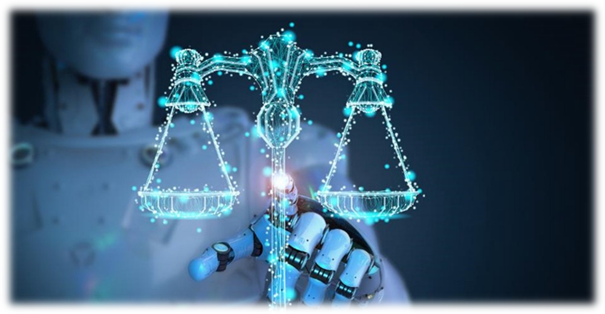Artificial Intelligence (AI) is reshaping various aspects of society, and the legal field is no exception. As AI technologies continue to advance, they are increasingly integrated into legal processes, presenting both opportunities and challenges for legal professionals. This article explores the intersection of AI and law, examining its impact on legal practice, access to justice, and ethical considerations.
AI Applications in the Legal Field
- Legal Research: AI-powered tools can analyze vast amounts of legal documents, precedents, and case law to assist lawyers in legal research and analysis. Natural language processing algorithms enable these tools to extract relevant information, identify patterns, and provide insights to support legal arguments.
- Contract Review and Analysis: AI automates the process of contract review by scanning contracts for key terms, clauses, and potential risks. Machine learning algorithms can identify discrepancies, flag potential issues, and streamline the contract review process, saving time and reducing errors.
- Predictive Analytics: AI enables predictive analytics in legal decision-making by analyzing historical case data and predicting case outcomes. This technology helps lawyers assess the strengths and weaknesses of legal arguments, evaluate settlement options, and devise litigation strategies based on data-driven insights.
- Legal Chatbots: AI-powered chatbots can provide legal information, guidance, and assistance to individuals seeking legal advice or information. These chatbots use natural language processing to understand user queries and provide relevant responses, increasing access to legal resources and services.

Impact of AI on the Legal Profession
- Increased Efficiency: AI streamlines legal processes, automates repetitive tasks, and enhances productivity for legal professionals. By freeing up time spent on routine activities, lawyers can focus on more complex legal tasks that require human judgment and expertise.
- Improved Access to Justice: AI technologies have the potential to improve access to justice by reducing barriers to legal services and increasing the efficiency of legal processes. Legal chatbots and online dispute resolution platforms, for example, make legal information and assistance more accessible to individuals who cannot afford traditional legal services.
- Ethical and Regulatory Challenges: The integration of AI into the legal field raises ethical and regulatory challenges related to data privacy, transparency, and accountability. Legal professionals must navigate issues such as algorithm bias, data security, and the ethical implications of AI-driven decision-making.
Conclusion
Artificial Intelligence is transforming the practice of law, offering new tools and capabilities to legal professionals while raising complex ethical and regulatory issues. As AI technologies continue to evolve, it is essential for legal practitioners to adapt to these changes, embrace innovation, and uphold ethical standards in the delivery of legal services. By harnessing the potential of AI responsibly, the legal profession can leverage technology to enhance access to justice, improve legal outcomes, and uphold the rule of law in the digital age.
Share this article


